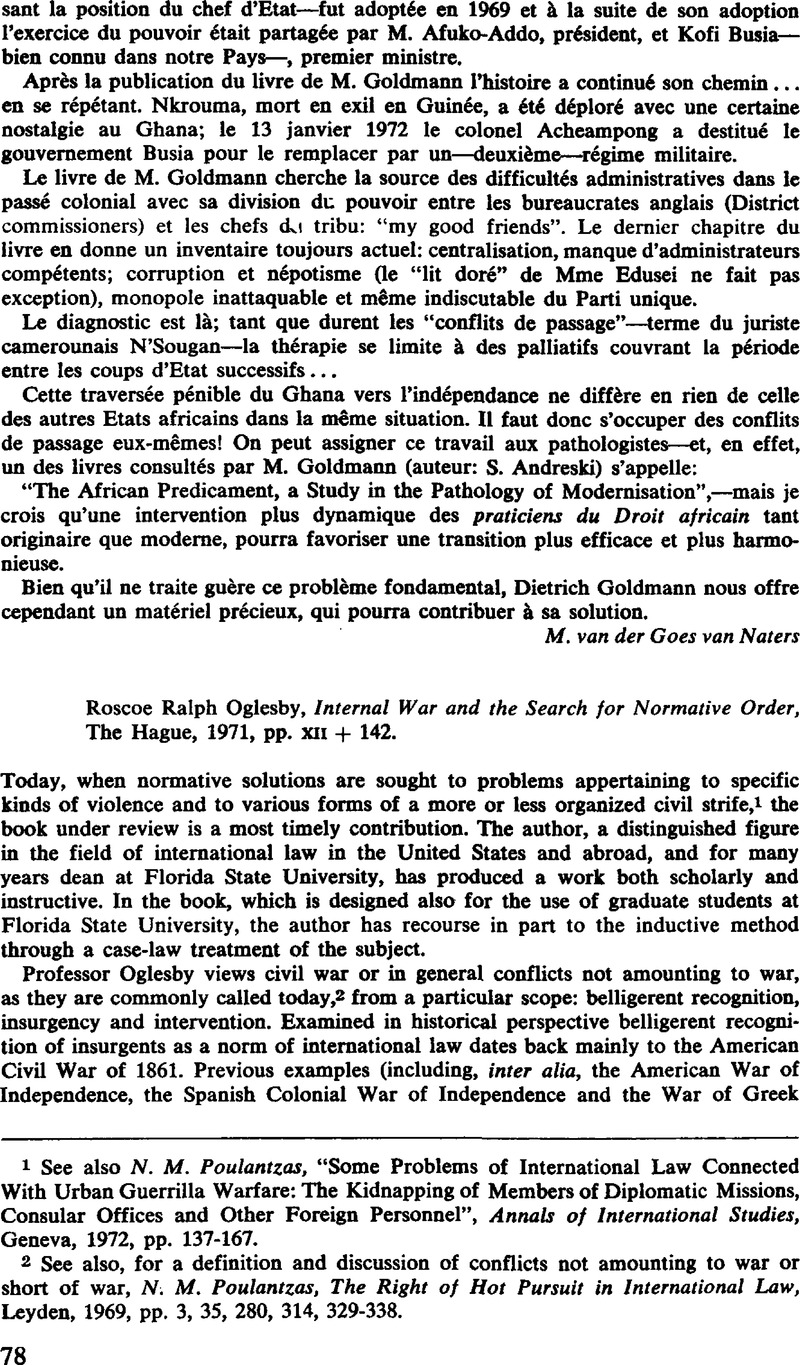No CrossRef data available.
Published online by Cambridge University Press: 21 May 2009

1 See also Poulantzas, N. M., “Some Problems of International Law Connected With Urban Guerrilla Warfare: The Kidnapping of Members of Diplomatic Missions, Consular Offices and Other Foreign Personnel”, Annals of International Studies, Geneva, 1972, pp. 137–167.Google Scholar
2 See also, for a definition and discussion of conflicts not amounting to war or short of war, Poulantzas, N. M., The Right of Hot Pursuit in International Law, Leyden, 1969, pp. 3, 35, 280, 314, 329–338.Google Scholar
3 The present reviewer does not agree with the author when he alleges—based on inaccurate sources—that during the War of Greek Independence (1821—1829) “butcheries” and “cruelties” were committed not only by the Turks but, as he implies, to the same extent by the Greek insurgents. However, the well-known, unprecedented and systematic atrocities committed by the Turks, during that war, cannot be compared with a few, wholly isolated and rather insignificant cases of atrocities committed by the Greek insurgents in response.
4 See contra C. Th. Eusthathiades, “La première application en Europe de la reconnaissance de belligérance pendant la guerre d'indépendance de la Grèce”, in Recueil d'études de droit international en hommage à Paul Guggenheim, 1968, pp. 22–43.Google Scholar
5 For an ample discussion of the “loose bipolar system” see Kaplan and Katzenbach, The Political Foundations of International Law (1961)Google Scholar and P. J. Fliess, International Relations in the Bipolar World (1968).Google Scholar It should be noted that the former book belongs to one of the most representative works of the “American realists” one of the most extreme branches of the sociological school of law.